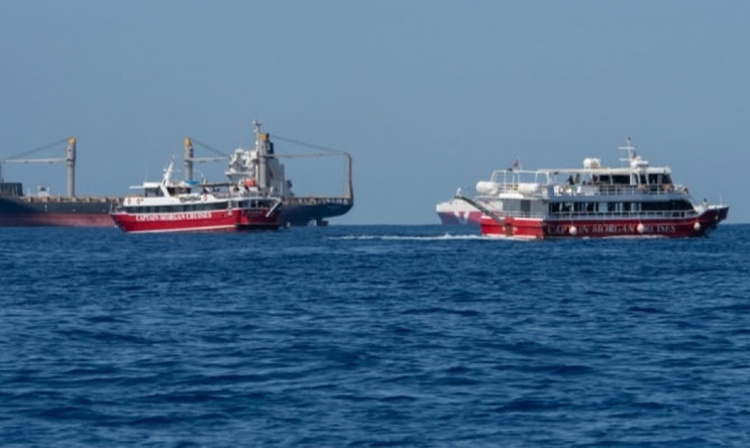The Port of Felixstowe, renowned as the UK’s largest and busiest container port, is achieving new milestones through strategic investments and operational enhancements. These initiatives are helping to solidify its reputation as a critical gateway for UK trade and a leader in global maritime operations. Here’s a closer look at recent developments that are shaping its future.
Record-Setting Vessel Draft Achievement
On November 11, the Mumbai Maersk, a 20,568 TEU (Twenty-foot Equivalent Unit) container ship, set a remarkable record at the Port of Felixstowe. It became the deepest draft vessel ever to call at the port, arriving with a draft of 16.8 meters and departing at 17 meters.
This achievement follows a £130 million project to deepen the port’s approach channel and main berths, enhancing its capacity to accommodate ultra-large container ships (ULCS). As these ships dominate global trade, Felixstowe’s ability to handle them efficiently underscores its role as a vital hub in international shipping networks. These upgrades are expected to attract more significant vessels, ensuring the port remains competitive in an increasingly crowded market
Cutting-Edge Automation with ARTGs
Felixstowe is leading the charge in port automation with the recent deployment of Automated Rubber-Tired Gantry Cranes (ARTGs). This advanced equipment streamlines container handling and reduces operational costs while aligning with industry trends toward automation.
The ARTGs also contribute to environmental sustainability by reducing fuel consumption compared to traditional cranes, supporting the port’s broader decarbonization goals. This move positions Felixstowe as a leader in implementing innovative solutions that enhance productivity and environmental stewardship
Commitment to Environmental Sustainability
The port’s ambitious decarbonization agenda is a cornerstone of its long-term strategy. Recent investments have focused on reducing emissions and improving energy efficiency, including transitioning to cleaner equipment and infrastructure. These projects are vital for aligning with the UK’s maritime decarbonization goals and meeting stringent international environmental standards.
As part of these efforts, Felixstowe is exploring renewable energy options, such as solar power and electric vehicle charging stations for port operations. These initiatives not only improve its environmental performance but also set an example for ports worldwide
Enhanced Rail Connectivity
Improved rail services have further strengthened Felixstowe’s position as a logistics hub. The port recently introduced its 38th daily rail service, expanding connections to inland destinations, including the Midlands. This expansion enhances the efficiency of container distribution, reduces road congestion, and significantly cuts carbon emissions associated with freight transport.
With one of the highest rail freight volumes in the UK, Felixstowe is playing a critical role in supporting sustainable and efficient supply chains
Looking Ahead
The Port of Felixstowe continues to push boundaries with its focus on modernization, sustainability, and connectivity. Its strategic investments ensure that it remains a crucial link in the UK’s trade infrastructure and a benchmark for innovation in the maritime industry.
As global trade evolves, Felixstowe’s commitment to growth and sustainability positions it to navigate future challenges while capitalizing on emerging opportunities. These developments not only benefit the port but also reinforce the UK’s role as a leader in global shipping.












Leave a Reply